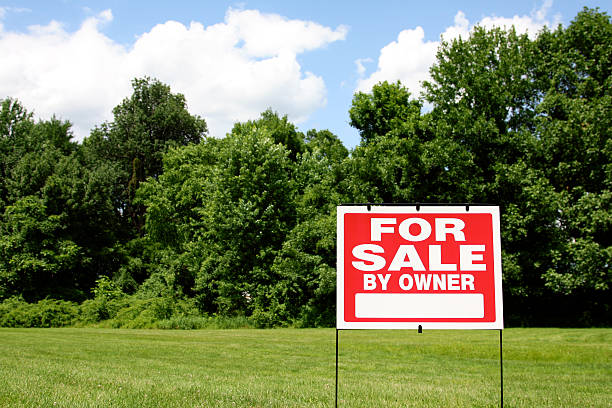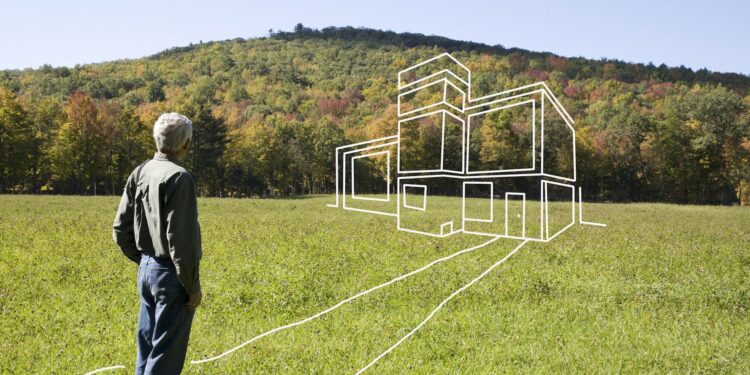If you’re interested in buying land, you’ve probably come across land offers labeled as unimproved, especially in rural areas. But what does unimproved land mean? This article will explore everything you should know about what it stands for, when buying an undeveloped parcel is a good idea, and how to make the right investment.
What Does Unimproved Mean In Real Estate?
Improved land is a property on which some form of upkeep, maintenance, or modification was done. As a result, these changes increase market value. On the other hand, unimproved land is a property that’s on sale as-is. This means it hasn’t seen any modification or maintenance. Undeveloped land, often called raw land, is a vacant area usually without driveway access, buildings, or utilities. Therefore, such parcels are usually significantly cheaper.
When Is It Smart to Buy?
. Think about it as a blank slate; you can develop the parcel as you see fit and customize your build according to your specifications. As long as you comply with the local zoning laws, you can be completely in charge of your building’s design.
Moreover, buying a property without any buildings on it means there are fewer maintenance costs. The only thing you’ll have to maintain is the land itself. Another major advantage when buying unimproved land is that it will be easier to purchase since there’s less buyer competition. You’ll have high chances to close on the property you desire and get a good deal.
Finally, unimproved real property has a great potential for appreciation, so it can be an excellent investment with an even better return. This is especially true if the piece of land is in an area expected to experience expanding demand in the future.

When Buying Unimproved Property is a Bad Idea?
Buying undeveloped land isn’t always a great idea, though. This is especially true if you don’t have extra money or time to spend on unforeseen postponements. For instance, you’ll have to obtain access to the property and install utilities. These investments can be expensive and time-consuming. Moreover, you’ll have to obtain special permits to build on the plot, which is also costly.
If you plan on building on your undeveloped land, consider your timeline. You won’t be able to build on the ground right away. It will take time to prepare the property, gain access, and install utilities. Also, you risk contractor postponement or delays in the construction process. So, if you don’t have the spare time, buying undeveloped land may not be the right move for you.
How to Buy It
If buying undeveloped land sounds like the right choice after all, here are a few things you’ll need to do to make sure you’re purchasing the proper plot of land.
Find the Right Land
The first step is to determine how you’ll use the vacant land. Then, look for the suitable land for sale that will serve that purpose. At the same time, consider the local zoning laws and restrictions, permits required, road access, utilities, easements, proximity to other structures that could potentially hurt or help land value in the future, and property easements.
Get the Land Surveyed and Tested
You shouldn’t rely solely on the information the seller provides. Instead, hire a professional to conduct a land survey. It’s also good to get an environmental test to check for potential soil contamination. Similarly, you may want to hire a title company to conduct a title search. The document will reveal any potential obstacles that may prevent you from legally purchasing the land.
Be Aware of the Costs
Investing in raw land usually requires a larger down payment. The down payment is usually around 15-25% for developed land. However, the lender sees more significant risks when it comes to undeveloped land. Because the land isn’t ready for a build and there may not be specific plans to use the land, you can expect to pay a down payment of up to 50%. Additionally, obtaining a loan is more challenging and expensive than getting one for developed property. Mortgage lenders also require higher down payments and charge higher fees and interest rates. Finally, tally up the costs associated with the improvements you plan on making on the plot.
Final Words
Buying undeveloped land can be an excellent investment. If the land is in an area that’s anticipating to experience major expansion, you can see a great return on investment. Knowing what to expect will help you save money and nerves. Be sure to calculate all costs and steps you’ll need to take to buy, prepare, and develop the land.






